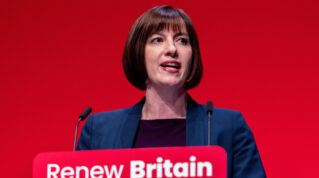The government is proposing the first rise in employee contributions to the teachers’ pension scheme since 2015 to avoid a shortfall in the fund.
However, the Department for Education said rates would not rise for the lowest-paid, and the monthly impact for an employee earning £110,000 a year is estimated to be £17 – which equates to just under £200 a year.
It comes after the last government increased the contribution schools have to make from 23.6 per cent to 28.6 per cent.
In a consultation published today, the DfE explained the six “contribution tier” rates had remained the same since 2015, but the thresholds at which each rate is paid had increased annually in line with inflation.
Increases in thresholds leaves shortfall
As a result, the “estimated yield” from the current structure is now 9.45 per cent, whereas members are “required collectively to contribute 9.6 per cent across the whole scheme membership”.
This is “primarily because of the member contribution tier thresholds increasing at a higher rate (based on CPI) than average salary growth, which has affected the expected distribution of the membership in the contribution tiers”.
The DfE said it had accepted a “unanimous recommendation” from the Government Actuary’s Department and TPS advisory board “to retain the current six-tier structure with the forecast shortfall met by an increase of 0.3 percentage points for tiers 2-6”.
The result would be…
- No change in the 7.4 per cent rate for those earning up to £34,289.
- Those earning between £34,290 and £46,158.99 would see their rate increase from 8.6 to 8.9 per cent.
- Those earning between £46,159 and £54,729.99 would see their rate increase from 9.6 to 9.9 per cent.
- Those earning between £54,730 and £72,534.99 would see their rate increase from 10.2 to 10.5 per cent.
- Those earning between £72,535 and £98,909.99 would see their rate increase from 11.3 to 11.6 per cent.
- And those earning between £98,909-plus would see their rate increase from 11.7 to 12 per cent.

Increases of up to £200 a year
The DfE said the “particular circumstances of a member will determine the precise effect”, but provided “the estimated impact on take-home pay (i.e. after tax relief has been applied) for the majority of members”.
It said a teacher on £30,000 would pay no extra contributions, a teacher on £50,000 would pay an extra £10 a month or £120 a year, and someone on £110,000 would pay an extra £17 a month, or £198 a year.

The DfE is also consulting on other small changes to pensions legislation.
One change will enable the National Institute of Teaching to participate in the teachers’ pension scheme. At the moment, they have “temporary acceptance” as they don’t qualify for full acceptance against current criteria.
Another change will mean employees of further education establishments who are already members or eligible to be members of the TPS to retain access if they contract is transferred to a new employer.
















Not sure why the cost of each pound of pension rises as income rises? It just looks like another progressive tax. Another disincentive to work for a higher income.